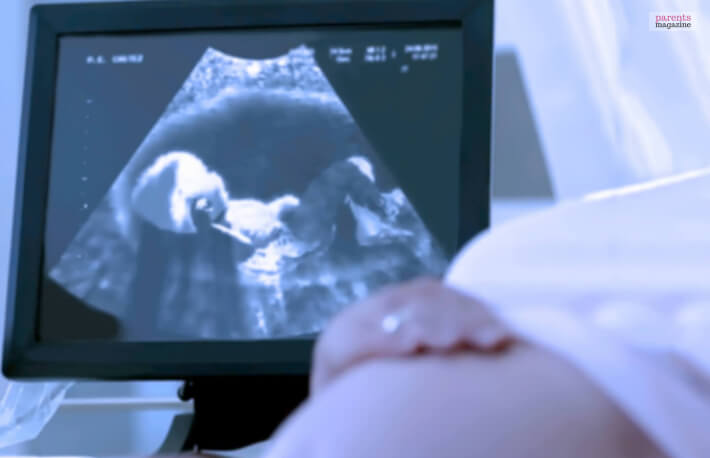
TIFFA Scan: Is It Really Important To Get It Done?
Motherhood brings on some of the best experiences in life that you have never faced before. This is something entirely new. Pregnancy will present you with various different feelings, from pregnancy glow to strange cravings. But along with everything, there is the love that you will feel for your child, something you have never felt before.
All through these nine months, your doctor will prescribe a few medicines and a lot of medical examinations and USGs. All these tests are required to determine if the baby is in the right position or not and whether they have developed in the appropriate way.
USG is something fascinating for an expecting mother. This is their first chance to connect with the baby. They get to see the picture of the fetus growing inside them. A TIFFA scan is also a type of USG.
What Is Tiffa Scan?
TIFFA is actually the short form for targeted imaging for fetal anomalies.it is also known as ultrasound level II. It’s very important to get these done during the second trimester. This scan is done during mid-pregnancy, and it examines your uterus and your baby in detail.

The main motive for doing the TIFFA scan is to be sure of the fact that your baby is developing as it should and to explore the placement of the placenta. The scan results help in determining the next course of treatment if required. Finding the best medical center nearby and doing regular check-ups is necessary during this time. This would make the journey smooth.
Preps For Tiffa Scan
The TIFFA scan is also an ultrasound, so prepping for it is quite similar to any other scans that might have been done from the beginning of the first trimester. The process is also the same, drinking lots of water to get a clear image and wearing soft, breathable clothes.

It might take almost 30-45 minutes before getting the scan done. This is an abdominal scan, and the technician puts a type of jelly on the bump, or the abdomen, to be precise, and with the help of a probe, takes the image of your baby and the womb.
The Procedure
Just as I mentioned earlier, it is an ultrasound, and the procedure takes the help of high-frequency sound waves to create a detailed image of the unborn baby as well as the surroundings. Let’s have an overview of the process.

Preparation
There is nothing exceptional that has to be done before taking a TIFFA scan. But like any other ultrasound, it is advised to have the bladder full to get better visuals and a clear image of the baby.
Ultrasound Examination
A trained sonographer or technician performs the test. A gel is applied to the abdomen, and with the help of a device known as the transducer, the sound waves are sent and then received to know if everything is A-OK.
Image Acquisition
The technician moves the transducer over the bump and emits sound waves that bounce off of the fetus and the placenta. The sound waves help in gathering a real-time image on the screen. The sonographer examines the anatomy of the fetus, which includes the brain, head, heart, organs, limbs, and spine.
Anomaly Detection
While getting the scan done, the sonographer checks if there are any developmental issues or any signs of structural abnormalities. It could be heart defects, neural tube defects, defects in the abdominal wall, or skeletal anomalies.
Gender Reveal
The main purpose of doing a TIFFA scan is to figure out if there is any form of fetal anomaly, but some people often choose to know the gender of the baby during this scan.
What Does A TIFFA Scan Tell You?

There are lots of things that a TIFFA scan tells about the baby. Let’s see what those are.
- The shape of the ace and if it has any abnormalities.
- The shape, structure, and size of the brain. This helps in determining if there are any issues with the brain.
- It shows the baby’s rib cage and spine, which helps in checking the skin growth and bone alignment.
- It checks the baby’s heart, whether all the valves are working properly with every beat, and if all the ventricles and arteries are equal in size.
- It checks their limbs, fingers, and toes.
- Check the kidneys to figure out if all urine production is happening or not. By the second trimester, the baby should be passing urine every 30 minutes.
But if there is a developmental gap of two weeks between the age of the baby and the scan report, the doctor will suggest more tests. The TIFFA scan is done primarily to rule out some anomalies like
- Severe congenital heart issues are detected 60% of the time.
- Anencephaly, or when the upper part of the baby’s brain is absent, has a 99% chance of getting detected.
- If the spinal cord is open, which is popularly known as spinal bifida, it gets detected 90% of the time.
- If the child has Down syndrome, it gets 50 to 60% of the time.
TIFFA scan also detects if there are any major kidney defects, like if a kidney is missing or if there is anything abnormal about the kidneys. It also finds out if there is any defect in the abdominal wall, or something wrong with the diaphragm, or any type of limb abnormalities.
Wrapping Up!
The TIFFA scan is one of the most important tools in parental care these days. It offers a very detailed glimpse into the development of the baby. This non-invasive method helps the parents and the doctors with knowledge and crucial insights about the baby, helps in timely decision-making, and helps in getting the required treatment as early as possible. This scanning procedure contributes to a thriving and healthy pregnancy. However, it is important to consult with a professional to determine the best course of action after getting the test done.
YOU MAY ALSO LIKE:
Already have an account?
Sign In
Create your account
User added successfully. Log in









